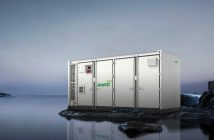- Despite an unprecedented acceleration in renewable energy deployment in 2023, progress falls short to triple renewables by 2030.
- Current national plans and targets are set to deliver only half of the required growth in renewable power by 2030.
Furthermore, annual investment in renewable capacity would have to triple, from a new record high of USD 570 billion in 2023 to USD 1.5 trillion every year between 2024 and 2030, confirms the first official progress report of the landmark energy goals established by the UAE Consensus at COP28 in Dubai. Tripling renewable power capacity and doubling of energy efficiency by 2030 are critical enablers for keeping the 1.5°C goal within reach.
Delivering on the UAE Consensus: Tracking progress toward tripling renewable energy capacity and doubling energy efficiency by 2030 was released by the International Renewable Energy Agency (IRENA) in partnership with COP28, COP29, COP30 host Brazil and the Global Renewables Alliance today at Pre-COP. It provides timely and accurate inputs to future COP decisions including COP29 in Baku.
To meet the global goals, installed renewable capacity would have to grow from 3.9 terawatt (TW) today to 11.2 TW by 2030, requiring an additional 7.3 TW in less than six years. Yet, current national plans are projected to leave a global collective gap of 3.8 TW by 2030, falling short of the goal by 34%.
In addition, the annual energy intensity improvement rate must increase from 2% in 2022 to 4% on yearly base up to 2030. This will require faster progress in efficiency measures and electrification across multiple sectors, including transport, building and industry.
These shortfalls highlight the inadequacy of existing policies and plans to limit global temperature rise to 1.5°C, underscoring the need for urgent policy interventions and massive investment. The third round of Nationally Determined Contributions (NDCs) under the Paris Agreement in 2025 must close the gap towards 2030.
Francesco La Camera, IRENA’s Director-General said: “Today, we’re raising the alarm. As the custodian for tracking progress of the UAE Consensus energy goals, we must flag significant gaps. The COP28 goals of tripling renewables and doubling energy efficiency are key enablers for our global efforts to keep 1.5°C within reach but we risk missing them. The next NDCs must mark a turning point and bring the world back on track.”
The progress report concludes that to deliver the UAE Consensus goals on the ground, significant advances will be required across the key enablers of the energy transition, namely: infrastructure and system operation, policy and regulation, supply chains, skills and capacities, finance, and international collaboration.
Emerging and developing economies continue to face financing gaps that undermine access to capital-intensive energy transition technologies. Renewable power investments in Africa declined by 47% between 2022 and 2023. Sub-Saharan Africa received 40 times less than the world average per capita transition-related investment.
Reducing this gap involves securing financing at better terms by mitigating country risks and increasing the availability of concessional finance, mostly from multilateral and bilateral development funds and financing institutions and philanthropies.
International collaboration will be crucial to better channel funds to achieve climate, development and industrialisation goals for a more equitable world. Agreement on a robust New Collective Quantified Goal (NCQG) of climate finance at COP29 will be vital for enhancing financial support for climate action as well as inspiring ambitious targets in the NDC 3.0 submission process in 2025.
CLICK HERE TO READ THE FULL REPORT
Author: Bryan Groenendaal


















